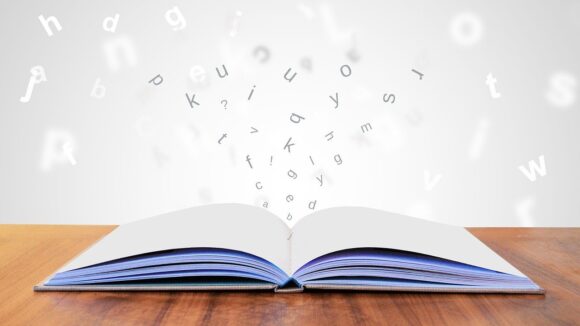
Maybe you’re a parent, and your kid is coming home each week with increasingly extensive vocab lists. Or maybe you’re a student yourself, and each week the readings your professor assigns contain more and more convoluted vocab. Pneuomonoultramicropscophicsilicovolcanoconiosis, anyone? Either way, you might find yourself wondering: just how many words are there in English, anyway?
Complications in the Count
The unsatisfying truth is that it’s hard to put an exact number on how many words are in any given language. Yes, there are dictionaries with numerically labeled entries, which would allow us to easily estimate a total word count. But dictionaries aren’t actually comprehensive lists of every word in a language. Instead, they pick out the words that are most commonly and widely used, and tend to exclude archaic terms. They also often don’t include the newest words in a language. All languages are constantly expanding, and words are being created every day. It would be impossible for a dictionary to update frequently enough to contain every single new word at all times.
And, as Merriam-Webster points out, there’s some ambiguity over what constitutes a unique word. A single word with different tenses may be one or more words, and a single spelling of a word with multiple meanings also may be counted once or multiple times, such as “rose.”
Because of all these factors, the number of words listed individually in a dictionary is probably lower than the number in the language as a whole. However, dictionaries can be used to estimate the number of words in current use in a language.
How Many Words are There, Actually?
Still, you might say: even taking all that into account, surely we can make some sort of estimate? And yes, we can, though those estimates might vary widely.
One of the highest estimates of the number of words in the English language was made by Harvard University during a collaboration with Google in 2010. This study estimated that there are just over a million words in the English language.
Most scholars, though, agree that this number is somewhat inflated – in part by the counting of similar words – and look to dictionaries for a more realistic guide. Merriam-Webster, as of 1993, estimated around 470,000. And the English Wiktionary, which is updated frequently and which contains more slang and unofficial language, has around 520,000 words.
On the lowest end of the spectrum, we can look at the Oxford English Dictionary’s list of words in current use. According to this list, as of 1989, there are around 171,000 words circulating in the English language. Clearly, then, there is a big range in how many words you count in the English language, depending on how you define a unique word and how else you set your parameters.
What About Other Languages?
But is this number normal? We might assume that all languages have roughly equal numbers of words, but in fact, this isn’t always the case. For one, ancient languages tended to have fewer words than modern languages, in part because of a reduction in the number of ‘things’ a speaker had to identify. Ancient Norse, for instance, didn’t need a word for ‘internet’ or ‘Teletubby.’
Also, language has diversified as it evolved. For example, many ancient languages actually only have two to five words for different colors, with many languages lacking a word for yellow or green. In fact, studies of languages have shown that most languages start out with one of two color words: dark and light. Over time, these color terms diversified to include first red, then blue and other colors. Now, all languages do not have the same number of color terms as English. For instance, Mandarin doesn’t have a term for pink; they simply say ‘light red’. On the other hand, Russian has a specific word for light blue, whereas we, in English, simply call it ‘light blue.’
So how does English compare to other languages? According to a list of dictionaries by number of words, the largest dictionary in the world is a Korean dictionary, Woori Mal Saem, which includes both North and South Korean dialects. This dictionary has over 1,100,000 entries. Other dictionaries with high word counts include the Portuguese Aulete Digital dictionary, which has over 800,000 words; the Finnish RedFox Pro dictionary, with over 800,000 words; and the Authority of Kurdish Language Dictionary, with around 744,000 words.
Feedback
Was this blog post helpful for you? Do you want to learn more about the sizes of different languages? Let us know in the comments and we might be able to create a post about it! And make sure to check out our other blog posts, too!


